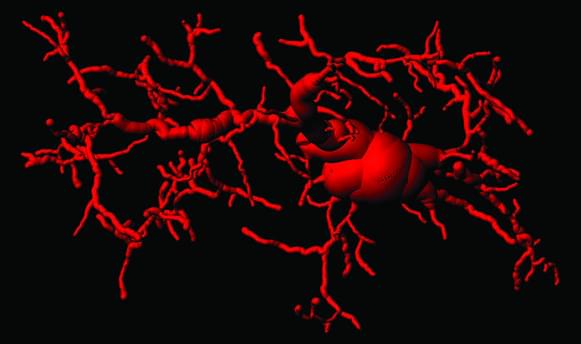Low-grade inflammation contributes to age-related decline and impairment, but the precise pathways responsible for this inflammation and their impact on natural aging have until now remained elusive.
A study headed by researchers at the Swiss Federal Institute of Technology Lausanne (EPFL) has now shown that a molecular signaling pathway known as cGAS/STING plays a critical role in driving chronic inflammation and functional decline during aging. Andrea Ablasser, PhD, and colleagues found that blocking the STING protein suppressed inflammatory responses in human senescent cells and tissues, and reduced aging-related inflammation in multiple peripheral organs and in the brain in mice.
The researchers in addition studied the effects of blocking the STING protein in aged mice. As expected by its central role in driving inflammation, inhibiting STING alleviated markers of inflammation both in the periphery and in the brain. “Notably, various aging-related immune signature genes were significantly attenuated as a result of STING inhibition,” they stated. And importantly, animals receiving STING inhibitors displayed significant enhancements in spatial and associative memory, as well as improved muscle strength and physical endurance.
“Consistently, STING inhibition by H-151, a brain permeable compound, reduced the levels of immune-related signature genes in the brains of aged mice,” the scientists pointed out. “Together, these results establish STING as an important driver of aging-associated inflammation, both in the periphery and the CNS, promoting frailty and cognitive decline.”
The study advances our understanding of aging-related inflammation and also offers potential strategies for slowing cognitive deterioration in age-associated neurodegenerative conditions. The precise elucidation of the neuroimmune crosstalk governing microglial-dependent neurotoxicity also holds promise for the future study of neurodegenerative diseases. The team concluded, “Together with previous studies in models of Alzheimer’s disease, Parkinson’s disease, amyotrophic lateral sclerosis and frontotemporal dementia, and Nieman–Pick’s disease, our study reveals notable convergence on cGAS–STING signaling in chronic neurodegenerative conditions … Our findings establish the cGAS–STING pathway as a driver of aging-related inflammation in peripheral organs and the brain, and reveal blockade of cGAS–STING signaling as a potential strategy to halt neurodegenerative processes during old age.”
